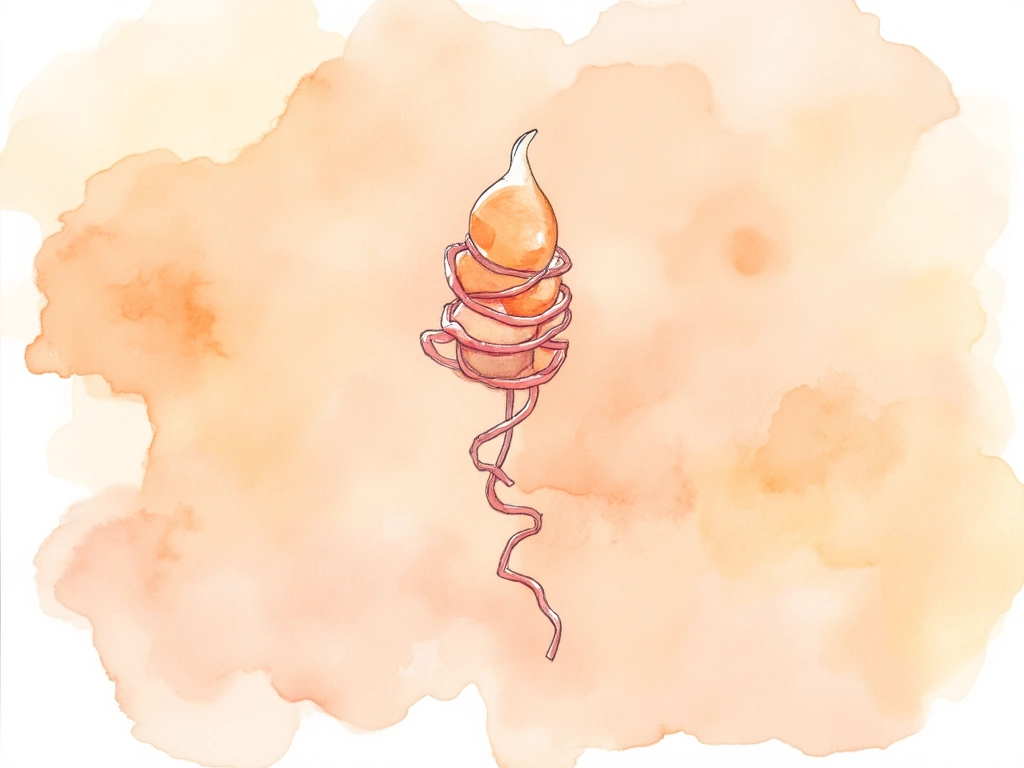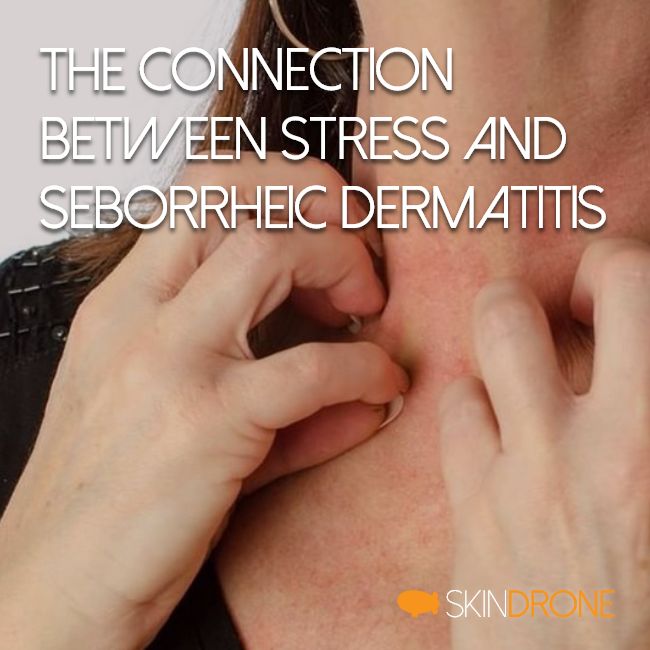- Stress, a common part of life, can significantly impact skin health, especially for conditions like seborrheic dermatitis.
- Chronic stress weakens the immune system, mirroring some effects seen in conditions like AIDS, and can exacerbate skin issues.
- Studies suggest a strong link between stress and seborrheic dermatitis flare-ups and severity.
- Managing stress through relaxation techniques and positive thinking may offer a valuable approach to improving seborrheic dermatitis alongside conventional treatments.
Stress is an unavoidable part of modern life, with everyone experiencing varying degrees of it. As we’ve discussed before, stress isn’t monolithic; different types of stress have vastly different effects on our well-being.
Short-term stress can actually be beneficial, acting as a stimulant for the immune system and promoting healthy development. However, chronic stress presents a stark contrast. It’s a pervasive and debilitating force that can gradually erode our immune defenses and overall health.
Chronic stress and its broad impact on the immune system have been covered previously. Here, we’ll delve deeper, specifically focusing on the potential relationship between stress and the progression of seborrheic dermatitis. While touching upon some key points discussed earlier, our main goal is to explore this connection in greater detail.

Stress and Skin Disease: Unpacking the Role
Given that chronic stress can impair the immune system – of which the skin is a crucial part – it’s logical to consider stress as a significant factor in skin diseases.
The first indication of this link lies in how chronic stress alters inflammatory processes and hinders wound healing. Two critical points highlight this connection (as previously discussed in the immune system chapter):
- Wound healing is a complex, multi-stage process where each step is dependent on the successful completion of the previous one.
- Inflammation and the reliable production of cytokines are essential during the initial stages of wound healing.
- Stress can disrupt the production of these vital inflammatory cytokines, leading to delayed wound healing.
This raises a critical question: If stress disrupts healthy skin repair, and a chronic skin condition itself is a major stressor, could this create a detrimental cycle? Could chronic stress be a key driver in perpetuating chronic skin conditions?
Unfortunately, research specifically focused on this area remains limited, often involving smaller studies. Despite this, a consistent pattern emerges from the available research, with many studies reaching similar conclusions. Key findings include:
- Research into epidermal permeability barrier function indicates that stress can impair barrier recovery and reduce its stability [1].
- A survey-based study suggested that stressful life events often precede seborrheic dermatitis onset, and ongoing stress may contribute to a less favorable prognosis [2].
- Comparisons between individuals with seborrheic dermatitis and healthy controls revealed significantly higher rates of psychiatric conditions among SD patients [3].
- Animal studies using mice demonstrated that chronic stress leads to immune system instability, increased tumor growth, and heightened susceptibility to skin cancer [4].
- A year-long follow-up study showed that psychological therapies resulted in greater improvement and reduced reliance on topical corticosteroids compared to standard corticosteroid treatment alone [5].
- An investigation of 343 individuals found that major stressful events frequently occur before the development of Psoriasis [6].
- A study examining the use of audio-tape meditation during UVB and PUVA treatment for Psoriasis demonstrated that stress reduction techniques can significantly improve treatment outcomes [7].
- In a study involving 22 university students with acne, stress levels were found to correlate with acne severity [8].
While each study is relatively small, collectively, these results strongly suggest a link between stress levels and skin health stability.

Stress, AIDS, and Seborrheic Dermatitis: Unveiling the Parallels
As previously mentioned, seborrheic dermatitis is notably prevalent in individuals with AIDS, with reported incidence rates ranging from 34% to as high as 83%. This starkly highlights a connection between the immune system disruptions in AIDS and seborrheic dermatitis development.
Let’s briefly examine the progression of AIDS. Initiated by HIV infection, AIDS involves a severe breakdown of the immune system. This immune system collapse increases vulnerability to infections and leads to a general decline in health.
Interestingly, chronic stress also exerts a detrimental impact on the immune system. It similarly weakens the body’s defenses against infections and contributes to overall health deterioration.
While these are general similarities, are there more specific parallels between the effects of stress and AIDS, particularly concerning the immune system? Let’s look at the research:
| HIV/AIDS | Chronic Stress |
|---|---|
| – High rate of CD4 (helper) T cell loss and reduced function [9] | – Reduced numbers of available CD4 T cells & reduced function [10] |
| – Reduced ratio of CD4 (helper) and CD8 (killer) T cells [11] | – Mixed findings in terms of ratio of CD4/CD8 T cells [12, 10, 13] |
| – Impaired natural killer cell activity and function [14] | – Deceased cytotoxic T cell and natural killer cell activities [15] |
While definitive conclusions are challenging, these points reveal some striking similarities in how both AIDS and chronic stress affect the immune system.
Is it the Treatment, Not the Condition?
It’s important to consider the most common treatment for AIDS: protease inhibitors. These drugs are known to cause glucose intolerance and lipid abnormalities [16]. Therefore, it’s possible that the increased susceptibility to seborrheic dermatitis in AIDS patients might be linked to treatment side effects rather than solely the disease itself.
Regardless of the exact mechanisms in AIDS, the link between chronic stress and immune dysfunction is clear. Unlike AIDS, which is caused by HIV, chronic stress is potentially manageable. Reducing chronic stress could be a powerful strategy for mitigating seborrheic dermatitis progression.

Harnessing Positive Thoughts and Emotions
If stress and negative emotions have a detrimental effect, it stands to reason that positive thoughts could be beneficial. This isn’t just wishful thinking; research supports the positive impact of mental well-being on the immune system. Consider these findings:
- In a study of 38 individuals, 32 who underwent hypnotic suggestion showed a significant reduction in inflammatory response to histamine. The researchers attributed this to the relaxed mental state induced by hypnosis, rather than hypnosis itself [17].
- Individuals who participated in an imagery-based relaxation session exhibited a reduced inflammatory response to capsaicin stimulation (the active component in chili peppers) compared to those who did not. The relaxation’s ability to lower blood pressure was suggested as a contributing factor [18].
- Individuals who watched a funny video showed an increase in an antimicrobial peptide in their sweat. A longer-term study indicated that daily viewing helped reduce Staphylococcus aureus colonization [19].
While not all studies in this area yield positive results [20], the majority suggests that positive emotions can enhance immune function. Therefore, managing stress and actively cultivating positive moods daily may be highly valuable in improving overall well-being and potentially aiding in the management of skin conditions like seborrheic dermatitis.

Key Takeaways: Stress and Skin Health
This section has explored the potential connection between stress and skin disease progression, particularly seborrheic dermatitis. Here are the main points to remember:
- Stress is a common experience, but chronic stress can significantly weaken the immune system over time.
- Stress primarily impacts the immune system by disrupting inflammatory cytokine production and delaying wound healing.
- Numerous small-scale studies indicate a relationship between stress and the severity of various skin diseases, including seborrheic dermatitis.
- Seborrheic dermatitis is highly prevalent in AIDS patients, and there are notable similarities between the immune system effects of AIDS and chronic stress.
- Chronic stress is a modifiable factor, and reducing stress may be a beneficial approach to managing and potentially reversing seborrheic dermatitis progression.

No Comments
Be the first to start a conversation